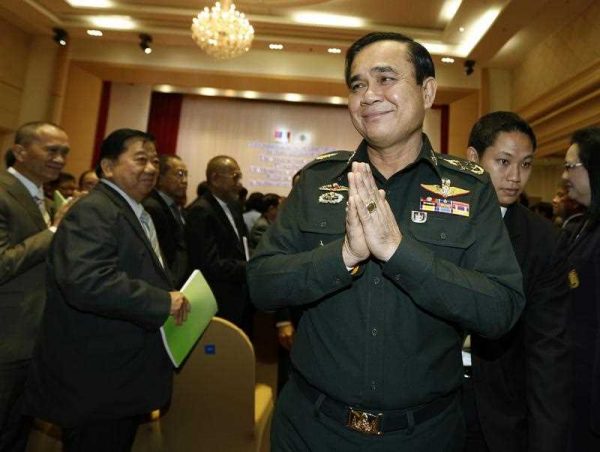The NCPO has asked to stay in power for one to two years to restore stability. While Thailand’s national reform has so far been on schedule on the political front, the Prayuth government now confronts another serious challenge as it faces pressure to revive Thailand’s struggling economy.
Before the coup, GDP growth contracted 0.6 per cent year-on-year for the first half of 2014, almost entering technical recession. Consumer confidence was at its lowest in April and the household debt-to-GDP ratio was as high as 82 per cent. The NCPO responded quickly after the coup, repaying rice farmers for their crops sold during the previous government and ordering speedy disbursement of compensation. Consumer confidence gradually picked up and reached a one year high in September thanks to the greater political clarity.
It’s not all good news, though. August imports plunged 14.2 per cent year-on-year. The decline was broad-based, led by fuel, machinery, automobile parts and consumer goods. This shows that investment is still lacklustre while domestic demand remains weak. The manufacturing production index and capacity utilisation have yet to pick up. Tourism remains sluggish due to the continued imposition of martial law. The export sector, which accounts for 74 per cent of GDP, continues to be a drag on the recovery of the Thai economy. August exports fell 7.4 per cent year-on-year. Demand from Europe and Japan, Thailand’s third and fourth major export destinations representing 9.81 per cent and 9.72 per cent of total exports respectively, remains weak.
By the end of 2014, Thailand will no longer be eligible to benefit from Generalised System of Preferences (GSP) privileges with the EU since it is now considered an upper-middle income country. As a result, Thai exports will lose competitiveness to countries that still receive GSP privileges such as India, Vietnam, Indonesia and the Philippines, or to countries without GSP privileges but with FTAs with the EU such as Malaysia, as well as to a more competitive China. Despite Thailand resuming negotiations on a FTA with the EU, the process won’t be completed until 2017 at the earliest, and ratification will only take place when Thailand has a newly elected government.
Timely government spending is vital. The country’s inflation has been subdued and public debt is currently at 45.7 per cent of GDP, thus leaving room for stimulus. Recently, the government announced a 364 billion baht (approximately US$11.2 billion) fiscal stimulus package for the fourth quarter of 2014 to create jobs and help rice farmers. The package covers delayed investment projects from the 2014 financial year, public facilities repair, refurbishing and anti-flood maintenance projects and a one-off payment to farmers. It is expected that revived government expenditure will boost sentiment and eventually lead to stronger business investments. At the same time, the government has expedited approvals of many projects that applied for the Board of Investment’s investment promotion privileges and concessions. Since the coup, projects worth 458.59 billion baht (US$14.1 billion) have been approved out of the 700 billion baht (US$21.6 billion) worth of projects awaiting approval.
Since Thailand is currently undergoing national reform, public spending should be geared towards repositioning the country’s economic fundamentals while honouring long-term fiscal stability. Infrastructure improvement is a must for Thailand to fully benefit from its geographical advantage at the heart of ASEAN. The NCPO made moves in the right direction when it approved a 2.4 trillion baht (US$73.9 billion) infrastructure development plan. The plan includes projects to improve the highway and water transport networks and Thailand’s air transport competitiveness, as well as a 127 billion baht (US$3.9 billion) project to construct six dual-track rail lines with a combined length of 887 kilometres. To deal with the upcoming integration with the ASEAN Economic Community, Thailand also needs to address supply-side challenges to increase competitiveness. For example, the agricultural sector should embrace integrated crop and harvest planning and improve post-harvest management to reduce reliance on government subsidies and create value-added products.
The Prayuth government has on its shoulders the public’s high expectations to carry out reforms that cannot be done under normal elected governments. Some government policies have a clear direction whereas some policies require further public debate. Whether the government will be successful in restoring growth and introducing reform within the expected time frame and amid increasing movement from Thaksin’s camp remains to be seen.
Dr Pisit Leeahtam is Dean of the Faculty of Economics at Chiang Mai University. Cynn Treesraptanagul is Dr Leeahtam’s research assistant.

